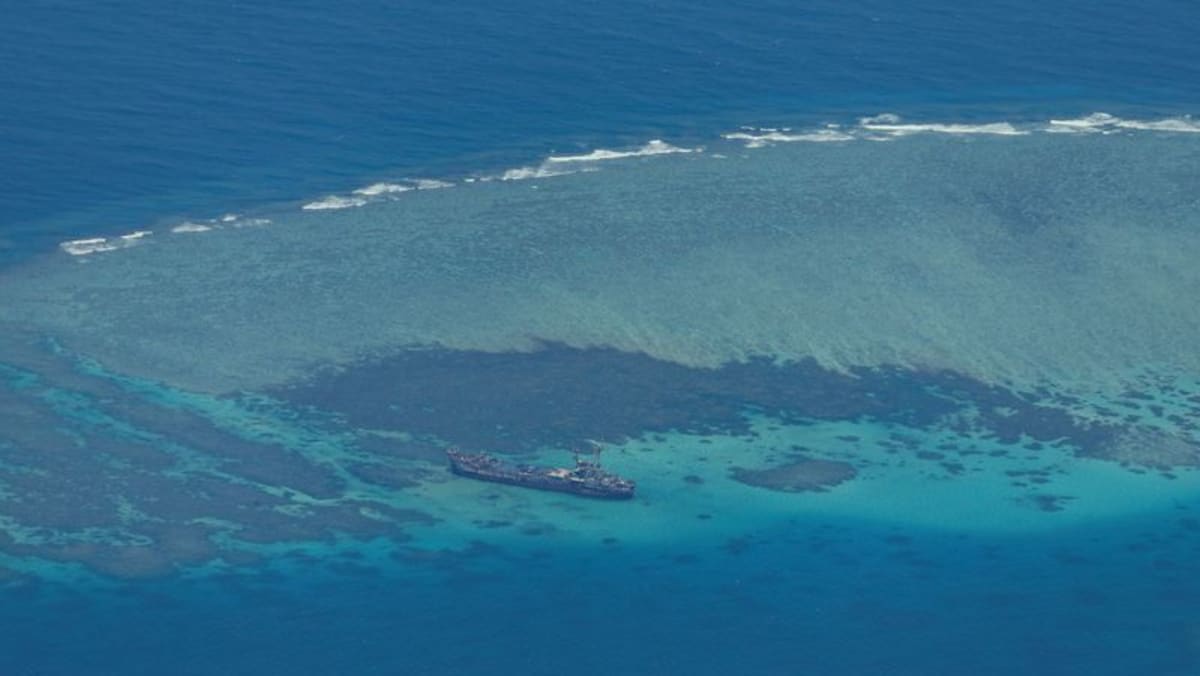Asia
China and Vietnam cause most damage to South China Sea’s corals: Report

The Devastating Destruction of Coral Reefs in the South China Sea: A Call to Action
Introduction to the Crisis
The South China Sea, a vital and contested waterway, has witnessed an environmental catastrophe of unparalleled proportions. Over 7,000 acres (28.3 square kilometers) of coral reefs—equivalent to nearly 4,000 football fields—have been destroyed by five claimant nations in the region. This shocking revelation comes from a report published by the Centre for Strategic & International Studies (CSIS), a U.S.-based think tank. The destruction, largely attributed to dredging and landfill activities, has caused irreversible and long-term damage to the delicate ecosystem of the reefs. This ecological tragedy underscores the urgent need for global attention and action to protect marine biodiversity.
The Key Findings:China and Vietnam Lead the Destruction
The CSIS report, released in late 2023, identifies China and Vietnam as the primary offenders responsible for the destruction of coral reefs in the South China Sea. China alone accounts for a staggering 65% of the damage, while Vietnam is responsible for approximately 33%. These numbers are alarming, given the critical role coral reefs play in sustaining marine life and maintaining ecological balance. The report highlights that dredging and land reclamation activities, particularly those involving the construction of artificial islands atop coral reefs, have been the main drivers of this environmental devastation.
The Ecological Impact: A Threat to Marine Biodiversity
Coral reefs are among the most vital ecosystems in the South China Sea, supporting a vast array of marine life. According to the CSIS report, the region is home to a significant proportion of the world’s coral reef species. These reefs not only provide habitats for countless marine organisms but also serve as natural barriers against storms and erosion, protecting coastal communities. The destruction of these reefs has far-reaching consequences, including the loss of biodiversity, disruption of food chains, and increased vulnerability of coastal populations to climate change. Marine conservationists emphasize that the damage caused by dredging and land reclamation is irreparable, leaving the reefs unable to recover.
China’s Role in the South China Sea: Land Reclamation and Its Consequences
China’s land reclamation efforts in the South China Sea have been a major contributor to the ecological crisis. The construction of artificial islands, often involving the dredging of sand and coral, has flattened entire reefs, replacing vibrant underwater ecosystems with sterile landscapes of concrete and steel. This activity has not only destroyed habitats but also disrupted the delicate balance of the marine environment. Conservationists argue that China’s actions, while driven by strategic and economic interests, have come at a tremendous cost to the planet’s biodiversity. The scale of the damage highlights the urgent need for accountability and international cooperation to protect the marine environment.
A Call for Multilateral Action
The destruction of coral reefs in the South China Sea has brought marine conservationists and environmental advocates to the forefront, demanding immediate action. Experts argue that multilateral environmental agreements are essential to hold nations accountable for their actions and ensure the protection of the marine ecosystem. Without such frameworks, the South China Sea’s coral reefs, along with the diverse life they support, may be irrevocably lost. The international community must come together to address this crisis, as the stakes are not just environmental but also geopolitical and economic.
Conclusion: The Future of the South China Sea’s Coral Reefs
The destruction of over 7,000 acres of coral reefs in the South China Sea is a stark reminder of the fragility of our planet’s ecosystems and the impact of human activities on the environment. While the report by CSIS sheds light on the scale of the damage, it also serves as a clarion call for action. Protecting the remaining coral reefs and restoring damaged ecosystems requires collaboration, accountability, and a shared commitment to environmental stewardship. The future of the South China Sea’s coral reefs—and the countless species they support—depends on our collective ability to act with urgency and resolve.











